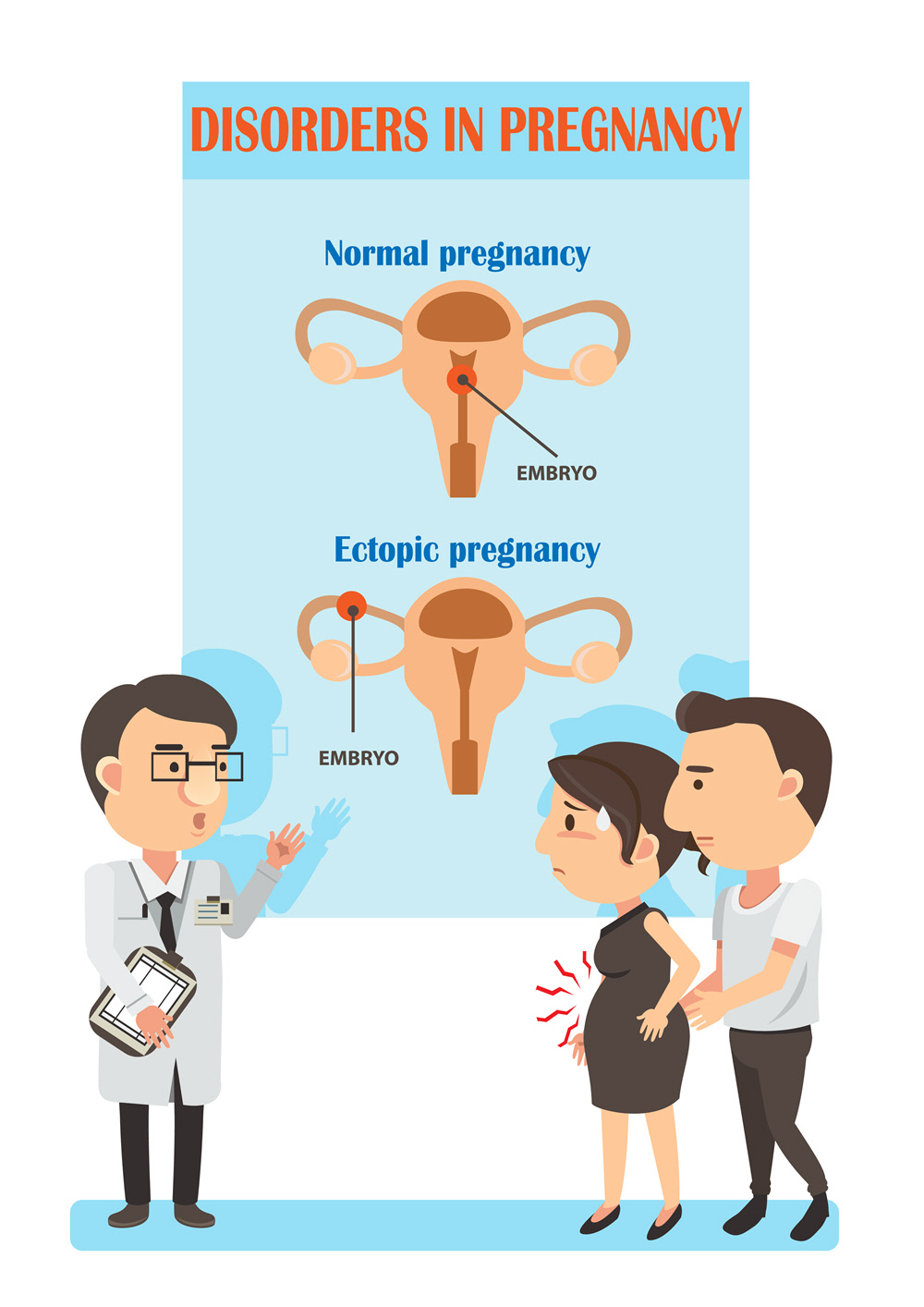Female Topics
Ectopic Pregnancy: What are its Symptoms, Causes, and Treatment?
By S.I. (staff writer) , published on September 18, 2020

Medicine Health ectopic bleeding rupture
What is an Ectopic Pregnancy?
Ectopic pregnancy is a condition in which a fertilized eggs implants somewhere else other than its allotted location [1]. A fertilized ovum is supposed to implant along the posterior wall of the uterus, in the main cavity. In an ectopic pregnancy, the egg can implant anywhere inside or outside the uterus. Fallopian tube is the commonest site of implantation other than the uterus itself, it leads to a tubal pregnancy. Other common sites of abnormal implantation are:
- Ovary
- Cervix
- Abdominal cavity
Ectopic pregnancy is unable to proceed like a normal pregnancy does, leading to bleeding. This condition can be life-threatening if left untreated.
What are the Symptoms of an Ectopic Pregnancy?
It is important to spot an ectopic pregnancy as soon as possible to get the treatment started. Prompt treatment is life-saving and increases the chances of future normal pregnancies. Some common signs and symptoms can help you do this. The early few weeks of pregnancy are just like normal. Symptoms take some time to be visible. Following are the early symptoms of an ectopic pregnancy [2]:
- Heavy vaginal bleeding and shock
- Pelvic pain
- Vomiting
- Abdominal distress
- Pain on side of the body
- Sharp abdominal cramping
- Pain in shoulders and neck
- Weakness
- Rectal pressure
- Dizziness
- Tenderness of breasts
What Causes an Ectopic Pregnancy?
No exact and clear cause of ectopic pregnancy is known yet. It means, you never know what caused you to have an ectopic pregnancy. It can be associated with [3]:
- Damaged Fallopian Tube: A damaged fallopian tube may be one of the causes. This tube is responsible for transporting the egg to the uterus. If it is obstructed due to swelling, the egg implants there instead of moving to the uterus.
- Hormonal Imbalance: hormones have a major role throughout the menstrual cycle and pregnancy. Any hormonal balance can be damaging.
As there are no exact causes, it is linked to some risk factors which are listed below [3, 4]:
- Age older than 35
- History of miscarriages
- Previous ectopic pregnancy
- Smoking
- Tubal surgery
- Pelvic inflammatory disease
- Fertility treatments
- Birth control methods
What is the Treatment for it?
The egg cannot survive in an unusual place. Tubal rupture in ectopic pregnancy is a life-threatening condition. The doctors need to remove the egg for the mother’s safety. There are 2 methods to do it, surgery, and medications [5]. These are described below:
- Medications: methotrexate is given in an injection during the early phase of pregnancy. This drug ceases cell growth of the fertilized ovum helping your body absorb the pregnancy. Multiple injections were given previously, now a single injection can do the trick. Keep an eye on the hCG level, it needs to fall to zero.
- Surgery: women with high hCG levels and tubal rupture have this option only. A laparoscopic surgery with tiny incisions is usually preferred in this case. In emergency cases, bigger incisions are needed to remove the ruptured fallopian tube.
References:
- https://www.ncbi.nlm.nih.gov/books/NBK539860/#:~:text=Ectopic%20pregnancy%2C%20in%20essence%2C%20is,of%20an%20oocyte%20and%20embryo.
- https://www.ncbi.nlm.nih.gov/pmc/articles/PMC1071024/
- https://www.ncbi.nlm.nih.gov/pmc/articles/PMC3213855/
- https://www.ncbi.nlm.nih.gov/pmc/articles/PMC4268192/
- https://www.ncbi.nlm.nih.gov/pmc/articles/PMC3213855/#:~:text=Intramuscular%20methotrexate%20is%20the%20most,in%20a%20single%2Ddose%20protocol.
Find articles related to: Medicine Health ectopic bleeding rupture
More articles about Female Topics
Back to the Health Tips Index




